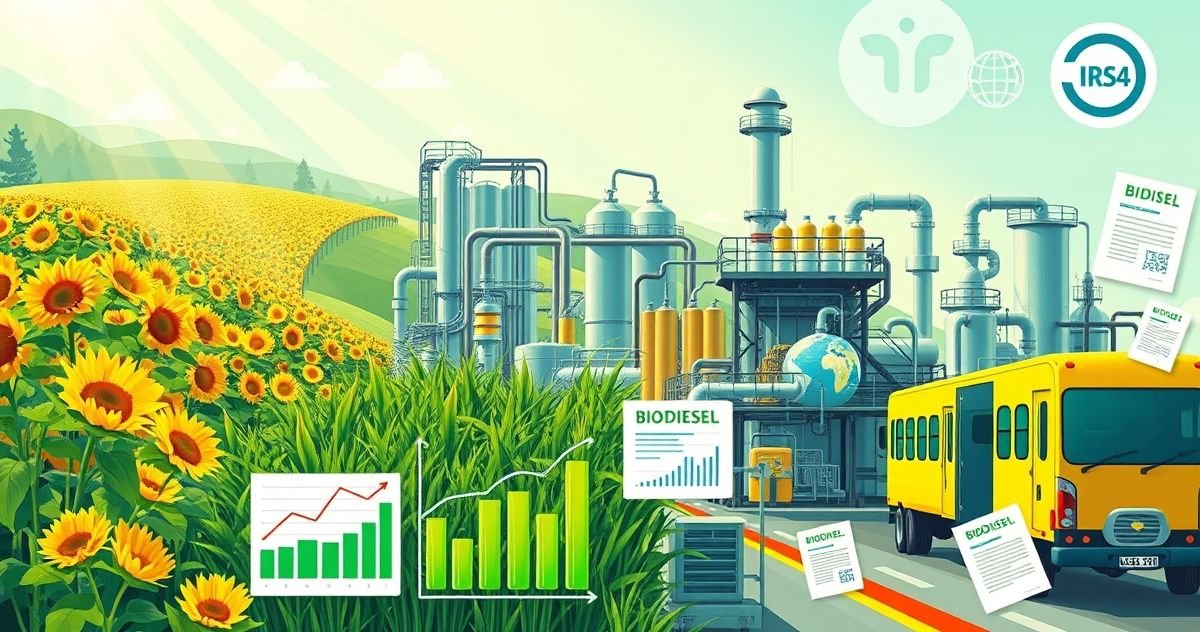Understanding the Biodiesel Fuel Credit
The Biodiesel Fuel Credit is a federal tax initiative designed to promote the use and production of biodiesel, a renewable fuel alternative. This credit is part of a broader effort to reduce dependence on traditional fossil fuels and to encourage the development of sustainable energy sources.
What It Is and Its Primary Purpose
The Biodiesel Fuel Credit aims to incentivize the production and utilization of biodiesel, a cleaner-burning, renewable fuel source made from biological materials like vegetable oils, animal fats, and recycled greases. The credit is offered to eligible taxpayers, including producers, retailers, and sometimes consumers, to financially reward and motivate the adoption of biodiesel, thereby supporting environmental objectives and energy independence.
Key Features or Components
- Tax Incentives: The Biodiesel Fuel Credit helps offset the cost of biodiesel production and use, providing a credit against taxes owed.
- Eligibility: Typically, the credit is available to biodiesel producers and blenders who meet specific criteria set by the Internal Revenue Service (IRS).
- Qualified Biodiesel: To qualify for the credit, the biodiesel must meet certain ASTM specifications, ensuring quality and performance standards.
- Credit Amounts: The credit amount is generally based on the volume of biodiesel produced or blended and may vary depending on legislative adjustments or extensions.
Relevant Filing or Compliance Requirements
For taxpayers to claim the Biodiesel Fuel Credit, they must adhere to specific filing requirements:
- IRS Forms: Typically, Form 8864, the Biodiesel and Renewable Diesel Fuels Credit, must be filed with the taxpayer’s federal income tax return.
- Records and Documentation: Taxpayers should maintain thorough records and documentation to substantiate their claims, including invoices, contracts, and certifications regarding the production and blending of biodiesel.
- Compliance with Regulations: Producers must ensure they comply with federal and state regulations governing fuel standards and sustainable practices.
Penalties or Consequences for Non-compliance
Failure to comply with the reporting and qualification standards for the Biodiesel Fuel Credit can lead to significant repercussions:
- Denial of Credit: The IRS may disallow the credit if eligibility and filing requirements are not met, leading to higher tax liabilities.
- Penalties and Interest: Incorrect claims or failure to substantiate claims can result in penalties and interest on unpaid taxes.
- Legal Repercussions: Misrepresentation or fraudulent claims may lead to audits or legal action, compromising a taxpayer’s position.
Importance or Significance in Tax Resolution or General Financial Compliance
The Biodiesel Fuel Credit plays a crucial role in promoting financial compliance and sustainability within the tax framework:
- Economic and Environmental Impact: By incentivizing the use of renewable energy, the credit supports the economy and reduces reliance on fossil fuels, contributing to environmental conservation.
- Fiscal Benefits: Eligible taxpayers can significantly reduce their tax liabilities, enhancing cash flow and financial strategic planning.
- Encourages Innovation: The credit promotes research, development, and adoption of alternative fuel technologies, benefiting the energy sector’s future development.
In conclusion, the Biodiesel Fuel Credit not only facilitates the transition to greener energy sources but also offers substantial fiscal benefits for taxpayers engaging in environmentally friendly practices. Understanding and effectively managing compliance requirements ensures that stakeholders can maximize these benefits while aligning with broader energy and environmental goals.



